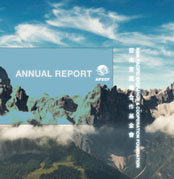November 14th, 2022
China-South Korea Cooperation Promotes Asia-Pacific Economic Integration
(From www.toutiao.com) With the signing of the Regional Comprehensive Economic Partnership (RCEP), the Asia-Pacific region faces new opportunities and challenges. This year marks the 30th anniversary of the establishment of diplomatic relations between China and South Korea, with bilateral trade volume approaching $400 billion. A key reason lies in the highly complementary industrial layouts between the two countries. Leveraging the RCEP framework to advance Asia-Pacific economic integration and lead the global economic recovery has become a shared consensus among all sectors in China and South Korea. Against this backdrop, a delegation led by Xiao Wunan, Executive Vice Chairman of the Asia Pacific Exchange & Cooperation Foundation (APECF) and Secretary General of the Asia Pacific Strategic Dialogue Organizing Committee (APSDOC), Ge Fen, Executive Deputy Secretary General of the APSDOC, visited South Korea at the invitation of the South Korean government on October 26, 2022. They held extensive exchanges with the South Korean government, political parties, social organizations, enterprises, and academic institutions on issues of common concern, achieving fruitful results.

Xiao Wunan (third from left), Gen Fen (second from left) and Joseph Yang-Ku Chung (third from right), President & CEO of Selecs Inc. visit the headquarters of Selecs Inc. in Seoul, South Korea.
There is long-term upstream and downstream industrial cooperation between China and South Korea, particularly in the manufacturing of high-tech products. In recent years, as Europe and the United States have intensified their high-tech export controls on China, the speed, scale, and quality of bilateral cooperation in this field have increased, creating unprecedented opportunities—such as in semiconductor equipment manufacturing and consumables. After arriving in Seoul, the delegation was invited to visit South Korea's Selecs Inc., a leading company in the fields of security and information security in South Korea and the sole representative of the South Korean government in various international cooperation initiatives. The two sides discussed how to strengthen cooperation between China, South Korea, and Shenzhen in fields such as security, informatization, artificial intelligence, new materials, and sensors, aiming to form a situation of complementary scientific research, mutual product compatibility, market exchange, and capital mutual assistance to create new opportunities.

Xiao Wunan (second from right) meets with Lee Hyun-Jae (left), Mayor of Hanam, South Korea, at City Hall.
Subsequently, the delegation conducted a working visit to Hanam City, Gyeonggi Province, at the invitation of its municipal government. Hanam City is a key hub for South Korea's industrial transformation. In pursuit of the nation's "dual carbon" goals, the city has phased out traditional industries and prioritized the development of cultural and creative sectors—mainly film, music, fashion, animation, immersive museums, and cultural IP incubation—areas where South Korea holds recognized strengths. Significant mutual benefits also exist for collaboration with China and Shenzhen. Mayor Lee Hyun-Jae expressed willingness to promote and strengthen exchanges through various means, such as establishing sister-city or friendly-city relationships, using Shenzhen as a focal point to comprehensively advance Sino-Korean cooperation in cultural and creative industries. The goal is to build Asian cultural and value systems centered on Eastern culture, thereby shaping global trends and ushering in a new era.

Xiao Wunan (left) takes a photo with Lee Jae-oh (right), Senior Adviser to the ruling party and Director of the Presidential Special Mission Office of South Korea, in his office.
During the delegation's visit, South Korea was experiencing the "Itaewon crowd crush disaster." Despite this, the ruling party and presidential office accorded high importance to the delegation's visit. Lee Jae-oh, the ruling party's Senior Adviser, received the delegation in his office and offered numerous constructive suggestions on strengthening bilateral relations under the new circumstances. He emphasized that breaking through and reversing South Korea's awkward position in managing relations with both China and the United States is a key future diplomatic priority. He highlighted public diplomacy and people-to-people exchanges as effective means to resolve bilateral tensions and potential issues.

Xiao Wunan (second from right), Ge Fen (first from left), Park Young-june (second from left), former Deputy Minister of State in the Prime Minister's Office, and Choi Yoo-sung (first from right), Deputy Director of the Presidential Special Mission Office of South Korea.
Meanwhile, Park Young-june, a core aide to the current ruling party and former Planning and Coordination Secretary of the Presidential Office under the Lee Myung-bak Administration, former Deputy Minister of State in the Prime Minister's Office, and former Vice Minister of Knowledge Economy, stated during talks with the delegation: "China and South Korea have signed an agreement on jointly developing third-party markets," a result jointly promoted by the leaders of both countries. In this regard, South Korea has many advantages and enormous potential, particularly in Africa, Southeast Asia, and South Asia. He also put forward many specific ideas, especially regarding China's infrastructure, raw material, and industrial relocation projects in Africa. On November 1, the Seoul Representative Office of APSDOC held an unveiling ceremony, witnessed by the Special Representative of the South Korean President, heads of major South Korean associations, and mainstream media reporters. The establishment of the Seoul Representative Office marks the creation of a "second channel" for China-South Korea exchanges, taking a solid step toward expanding people-to-people exchanges and increasing mutual trust, while also playing a positive role in promoting China-South Korea cooperation and the goal of Asia-Pacific economic integration.

Group photo at the unveiling ceremony of the Seoul Representative Office of the Asia Pacific Strategic Dialogue Organizing Committee


 Back
Back